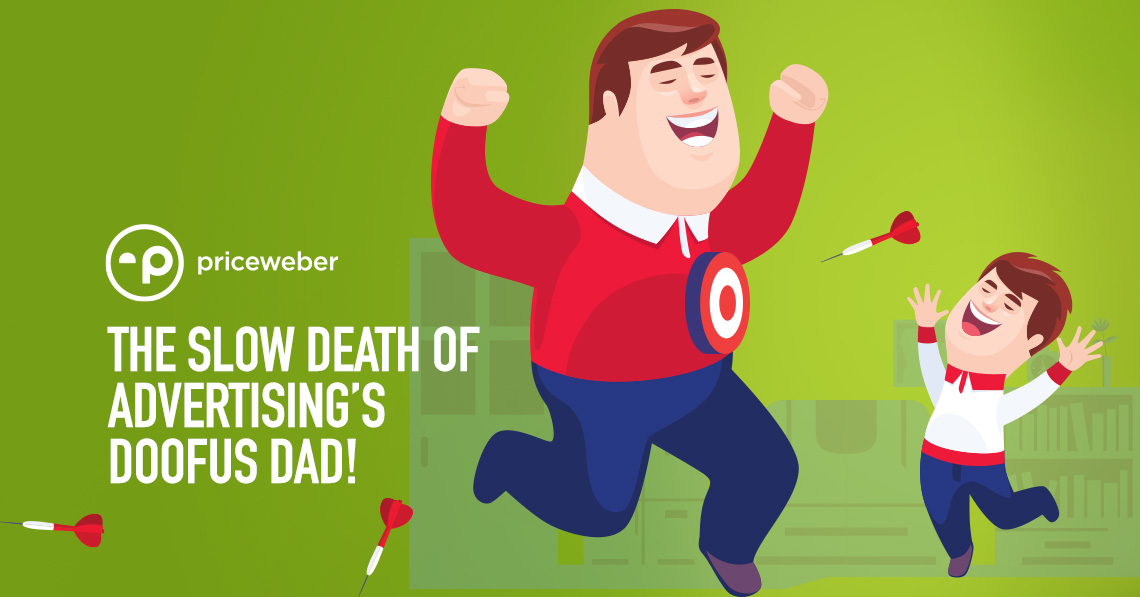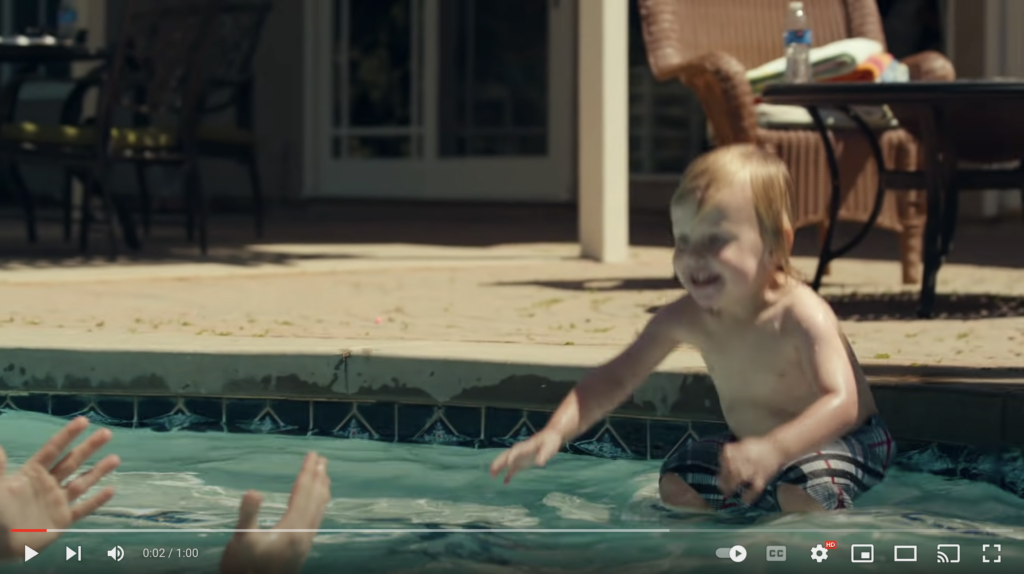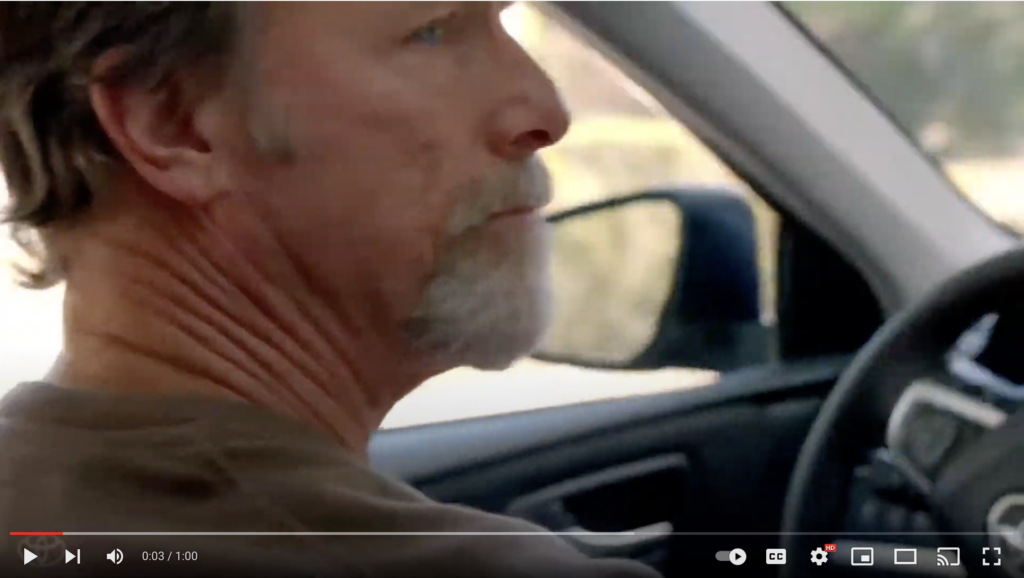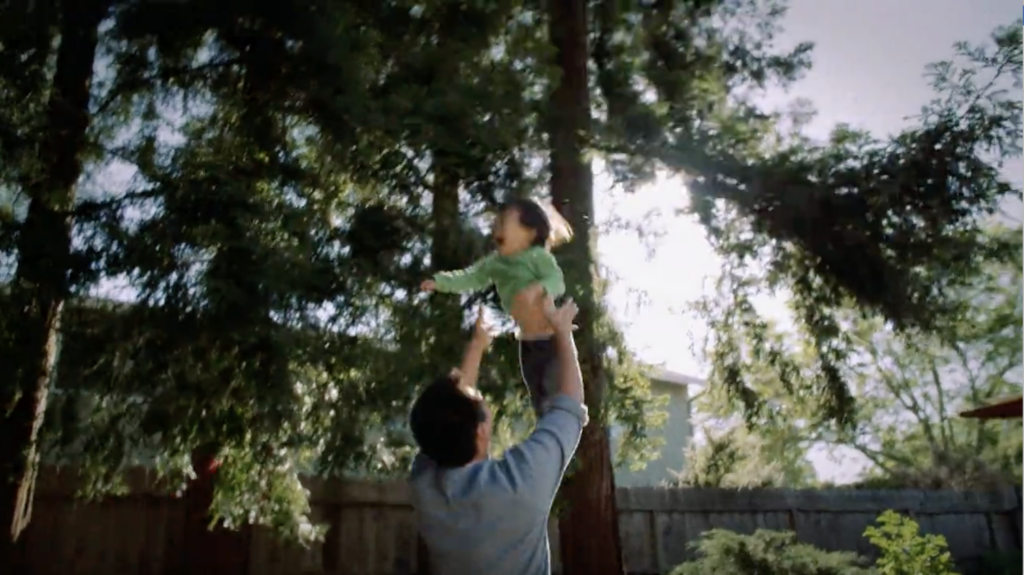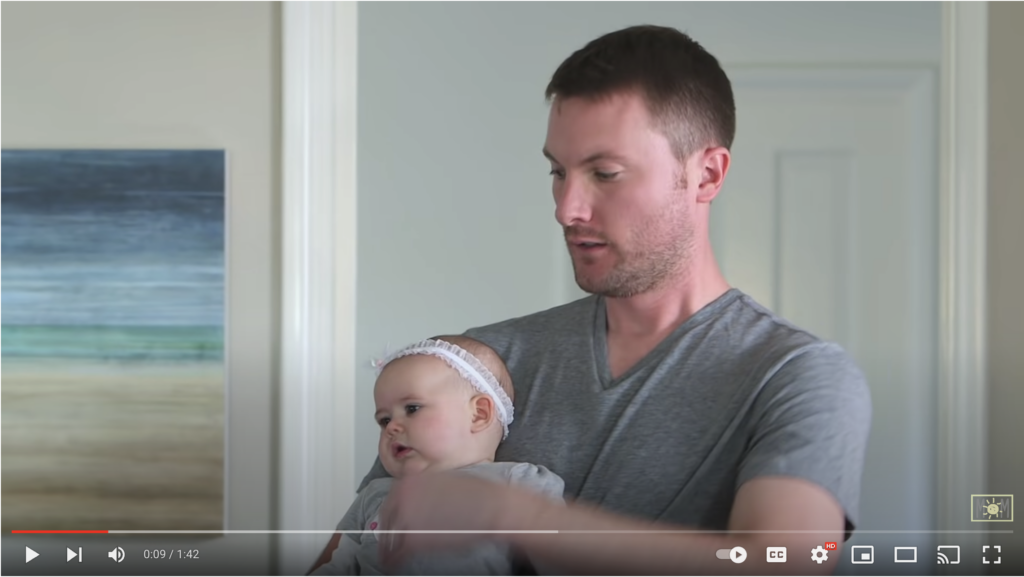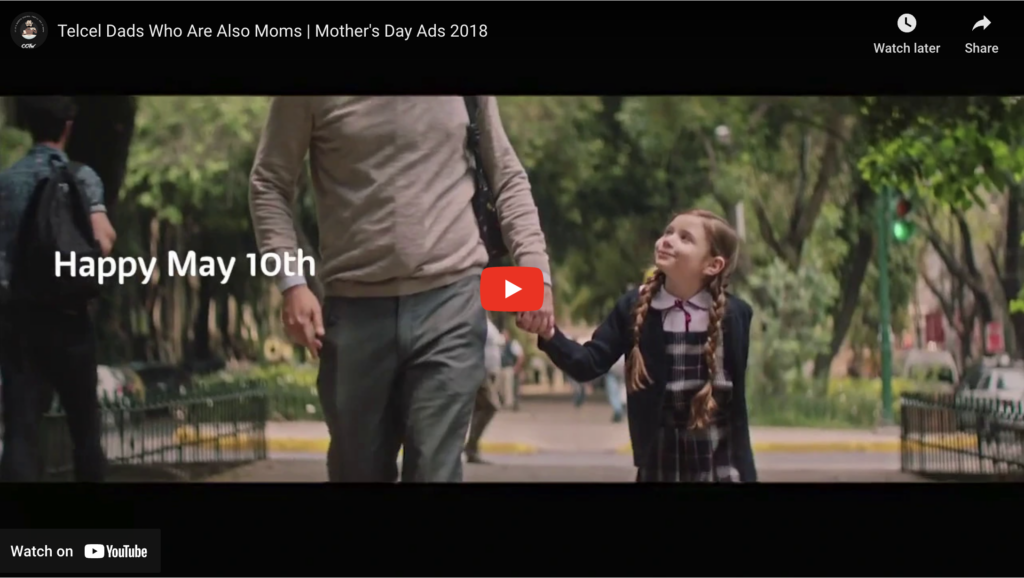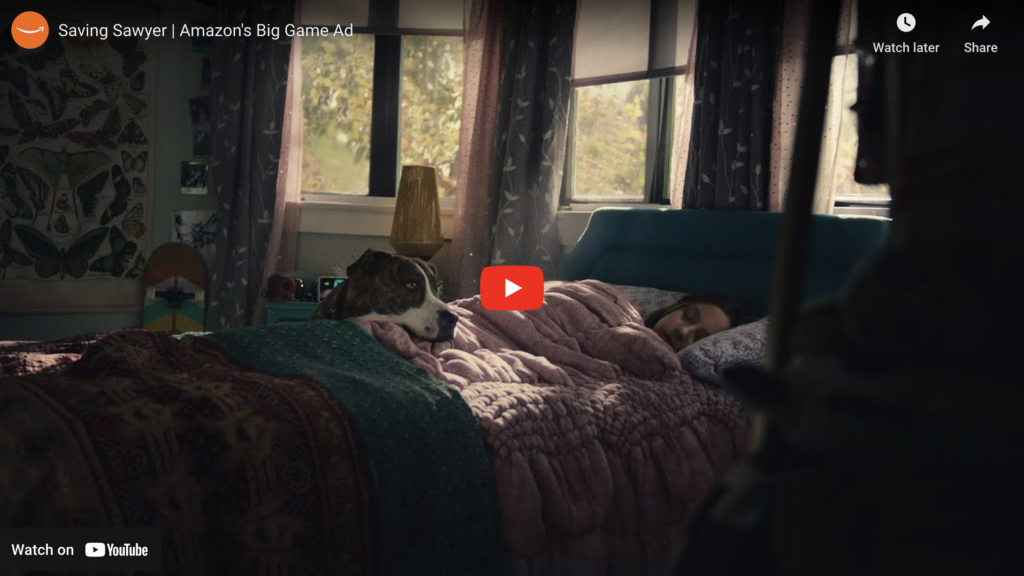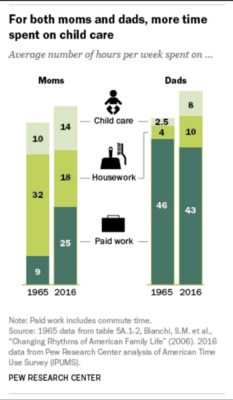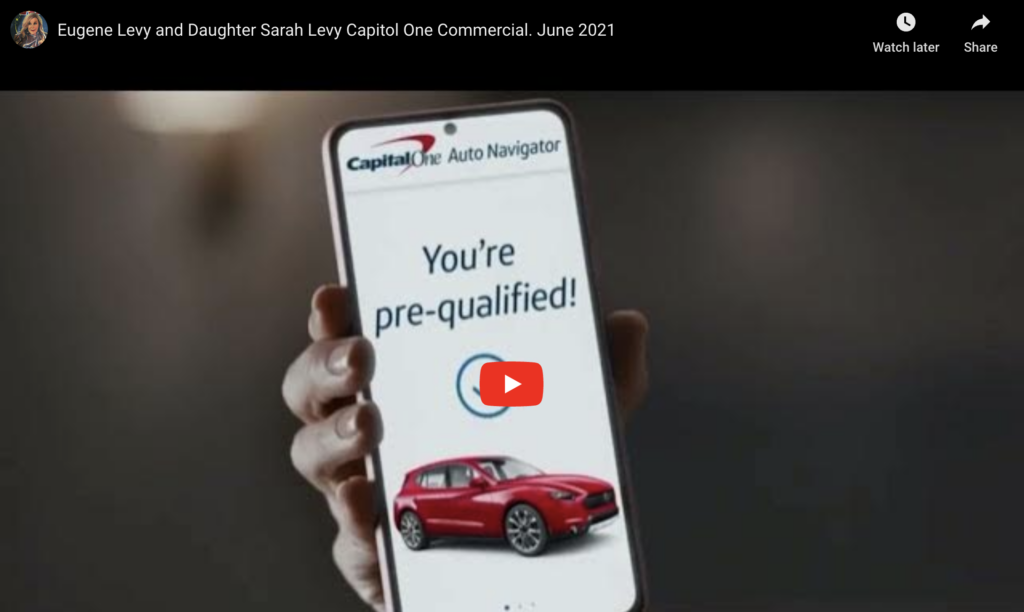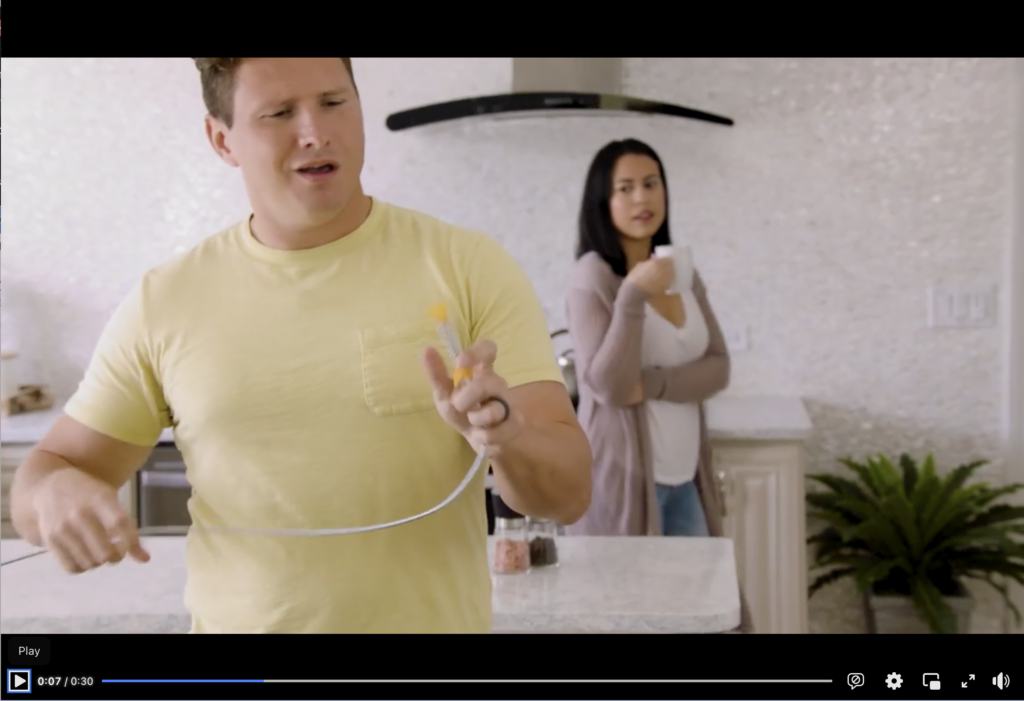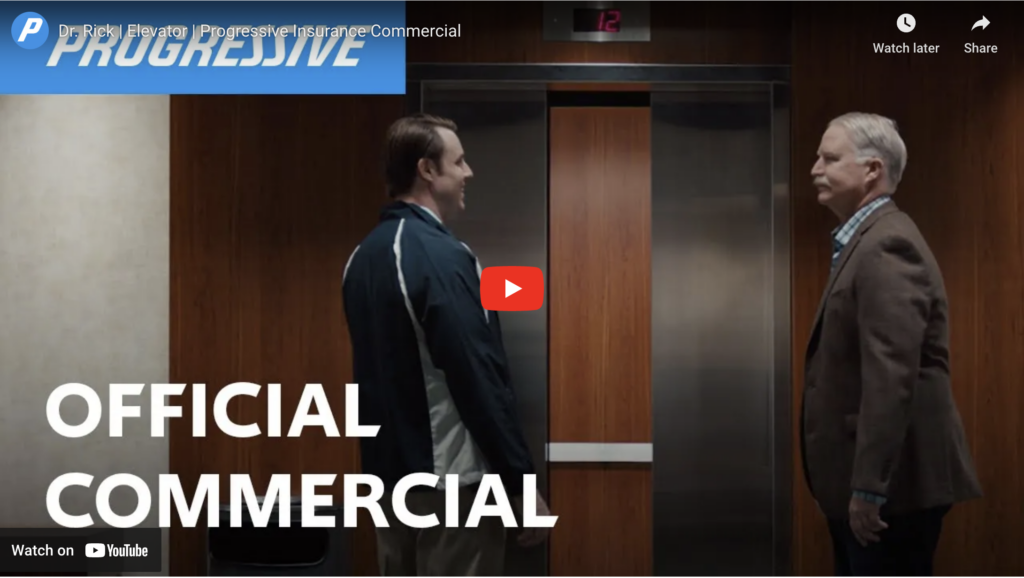The doofus dad stereotype, which was a negative and inadvertent byproduct of the explosion in social change in the late 20th century, saw dads in not just ads but all media slide from their status as head of the household to the bumbling dads in popular TV series and commercials beginning in the mid-50s with Ralph Kramden. In the ‘60s, there was Kramden’s animated caveman alter ego Fred Flintstone and then Archie Bunker in the 70s, carrying through in an almost unperturbed manner until 2012. Then, in 2012, fatherhood found change.org when stay-at-home dad Chris Routley had enough. Chris started a petition against Huggies. Huggies had just released a commercial that stated, “To prove that Huggies diapers and wipes can handle anything, we put them to the toughest test imaginable: Dads.”
Huggies was the tipping point for many dads. Fatherhood lashed back with online comments on social media like this one from Ben Bedgood, “I hope your PR department is having some sleepless nights right now – you know, the kind that I had when my 1 1/2-year-old had bronchitis. Good luck trying to put this fire out, Huggies.”
Because of pressure, Huggies pulled the ad and reworked a much more father-friendly version. This was the beginning of change. Just like purchasing a bad tie from Amazon or a bottle of cheap cologne, every year, people only write about the doofus dad topic in the second and third weeks of June to commend Father’s Day. In this edition of Plain Talk, we’ll try to do something different. Instead of just complaining, we’ll discuss the following:
-
The progress that has been made against the doofus dad stereotype
-
The societal acceptance of fathers in this changing world
-
The last few ads with “Homer Simpson” dads
The progress that has been made against the doofus dad stereotype
Since 2012, the perception of dads has changed fairly significantly in advertising, really starting with Dove Men+Care in 2013, with “Operation Homefront,” where they brought 300 service men to travel home for Father’s Day. Ads started to take a particular pro-dad angle. By Father’s Day 2014, They knew they were on to something, as Dove Men+Care sales were up 12.81% year over year, so they went more mainstream with this tear-jerker.
Dove Men+Care “Real Dad Moments” spot
That ad was soon followed by Cheerios’ “How to Dad.”
By Super Bowl 2015 (dads get Father’s Day and the Super Bowl), Toyota and Nissan joined Dove Men+Care and Cheerios with their own pro-dad ads.
Toyota’s “One Bold Choice” spot
By Father’s Day 2016, more brands, including Delta, started putting out “pro-dad” ads.
Delta ““pilots on the ground” spot
Despite these advertising successes, in 2017, research supported what millennial men had been stating on social media when a study found:
Seventy-four percent of millennial fathers felt advertisers and marketers were “out of touch with modern family dynamics,” while 38 percent believed brands did not portray their role as a parent accurately.
But this shouldn’t surprise anyone because while some brands were making strides to break the stereotype of the doofus dad, others were still portraying him as the babysitter dad – more interested in watching a game than caring for his kids, and unconventionally clueless in his very own home, as can be seen in this 2015 Glad Wrap ad.
Glad Wrap’s “WhatsUpMoms Contest” spot
Then, there’s this 2018 well-intentioned Telcel ad that ran in Mexico City to recognize single dads on Mother’s Day. It implies taking your kid to an extracurricular or waking them up for school is a mom’s job.
Telcel’s “Dads Who Are Also Moms” spot
Millennials were a tough read. While they have lower divorce rates than their two previous generations, 64% of millennial moms have at least one child outside of marriage. This is because while millennials are less likely to divorce, they are also less likely to marry.
Still, while ads have become amazingly multiracial and representative of gay marriages, the norm continues to depict two-parent families, only in a much more positive and cooperative light, as can be seen in this 2023 Amazon Super Bowl ad where both parents are involved in child-rearing activities, family time and family decisions.
Amazon “Saving Sawyer” spot
So, while today’s ads are less likely than ads a decade ago to show the doofus dad, they are also less likely to show the superhero dad. The industry has mostly understood the millennial generation; a study by sociologists at BYU and Ball State published in 2018 found that most modern-day fathers are relatively involved in their children’s lives. Taking time to be more involved in school pickups and drop-off routines, mealtime, homework assistance, creative play and quality time are some areas where modern dads are more present. Further research by Pew found in 46% of two-parent families, both mom and dad work full time. In most of these families, parents share the load of chores, discipline and quality time with kids, but scheduling and sick days fall more on the mom. So, depicting dad and mom as a tag team has become much more common.
The societal acceptance of fathers in this changing world
To coincide with the shift in advertising and a better understanding of millennial parents, a number of pro-father groups, churches, counselors and legislators started publishing roughly the same set of troubling statistics, causing many people to rethink the significance of fathers in children’s lives:
-
- 63% of youth suicides are from fatherless homes (U.S. Dept. of Health/Census Bureau) — five times the average.
- 90% of all homeless and runaway children are from fatherless homes — 32 times the average.
- 85% of all children who show behavior disorders come from fatherless homes – 20 times the average. (Centers for Disease Control and Prevention)
- 80% of rapists with anger problems come from fatherless homes – 14 times the average. (Criminal Justice & Behavior, Vol 14, p. 403–26)
- 71% of all high school dropouts come from fatherless homes – nine times the average. (National Principals Association Report on the State of High Schools)
These stats even appear on news and government websites.
So, as fathers started to demand that B2C brands treat them with respect, they also began to step up their involvement. Dads in 2016 reported spending more than three times as much time with their kids and doing 2.5 times as much housework!
The last few ads with “Homer Simpson” dads
While almost all major brands have moved away from making blanket doofus dad statements in their marketing, the doofus dad still exists in popular TV shows and local ads.
Two recent such examples in advertising are:
1. The doofus TV show dad making a cameo in a brand ad. Such is the case when the lovable boomer dad, Eugene Levy from Schitt’s Creek (Johnny Rose), shows up at 4 a.m. with his calculator to help his millennial daughter Sarah Levy buy a car, only to find she had already done so more smartly with Capital One Navigator (2021). While this plays off of Eugene’s TV character, it also plays up to doofus stereotypes!
Capital One Auto Navigator “Dad Mode” spot
2. Local dad-fail ads. You see these all the time for plumbers. The overconfident doofus dad starts a DIY plumbing project or repair and either hurts himself, humiliates himself, and/or floods the house!
Plumbing Today “$50 off” spot
Balancing the humor
Brands can be funny without being condescending. Progressive does a wonderful job with young homeowners becoming their parents. Millennials and their boomer parents both find these funny because “becoming your parents” is a rite of passage we all experience as we grow up and take on the responsibility of parenting and home ownership. It’s a rite of passage boomers went through in their late 30s. That’s why they’ve been running the campaign for five years now.
Progressive Insurance Commercial “Dr. Rick – Elevator” spot
Besides, there are emotions other than humor that are equally endearing. The Dove Men+Care “Real Dad Moments” ad may have made me tear up a little – or it was the cat!
Do you have any other ads to add to the list? Want to discuss out-of-the-box ideas with our strategic team of problem-solvers? Drop us a note, or call us at 502-499-4209. Like what you read today? If you’re not already a subscriber to our Plain Talk newsletter, you can subscribe below.

